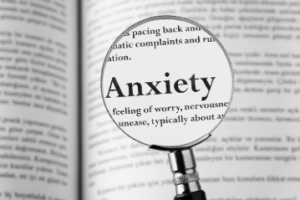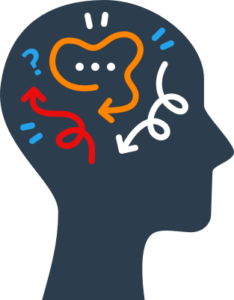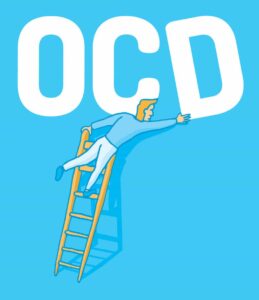Do you feel like you’re constantly on edge? Do you worry about things that most people wouldn’t give a second thought? If so, you may be suffering from OCD or anxiety disorder. These two conditions often go hand-in-hand and can be incredibly debilitating for those who suffer from them. In this blog post, we will discuss the symptoms of OCD and anxiety disorder, as well as treatment options available to those who suffer from them.
Contents
What Is OCD?
 OCD is an anxiety disorder that causes people to have repetitive, intrusive thoughts (obsessions) and/or engage in repetitive behaviors (compulsions). Also, OCD can be a very debilitating disorder, making it difficult for people to function in their everyday lives.
OCD is an anxiety disorder that causes people to have repetitive, intrusive thoughts (obsessions) and/or engage in repetitive behaviors (compulsions). Also, OCD can be a very debilitating disorder, making it difficult for people to function in their everyday lives.
OCD also means that people are constantly worried about things that might happen, even though they know that the chances of them happening are very slim. For example, someone with OCD might be afraid of getting sick, even though they are healthy and there is no reason to believe that they will get sick. This can lead to a lot of anxiety and distress.
What Is Anxiety Disorder?
 Anxiety disorder is a general term for several different types of disorders that cause people to feel extremely anxious or nervous. Some of the most common types of anxiety disorders include generalized anxiety disorder, social anxiety disorder, panic disorder, and phobias.
Anxiety disorder is a general term for several different types of disorders that cause people to feel extremely anxious or nervous. Some of the most common types of anxiety disorders include generalized anxiety disorder, social anxiety disorder, panic disorder, and phobias.
Anxiety disorders can be very debilitating, making it difficult for people to function in their everyday lives. People with anxiety disorders may avoid certain situations or activities because they are afraid of what might happen. For example, someone with a social anxiety disorder may avoid going to parties or meeting new people because they are afraid of being embarrassed or judged.
Relationship Between OCD And Anxiety
The re-experiencing symptoms of PTSD can be very similar to the obsessions experienced in OCD, and both conditions share many of the same risk factors. It’s no wonder that the two disorders often occur together. In fact, according to the National Institute of Mental Health, about one-third of people with OCD also have an anxiety disorder.
There are a number of different types of anxiety disorders, each with its own set of symptoms. But in general, people with anxiety disorders experience persistent, excessive worry or fear that interfere with their daily lives. This can manifest itself in a number of ways, including:
- Avoiding certain situations or objects out of fear
- Excessive hand-washing or cleaning
- Checking things frequently
- Arranging things in a certain order
- Repeating certain actions or rituals
- Seeking reassurance from others
The relationship between OCD and anxiety can be a vicious cycle. Obsessions can cause anxiety, which in turn can lead to more obsessions and more anxiety. This can make it very difficult to break out of the cycle and get better. But with treatment, it is possible to manage both conditions and live a healthy, fulfilling life.
Similarities of OCD And Anxiety
 There are many similarities between OCD and anxiety disorders, and it can be difficult to know which one you may have. Both OCD and anxiety disorders can cause excessive worry, fear, or stress. They can also cause avoidance behaviors. People with OCD may avoid certain situations or objects that they associate with their obsessions. People with anxiety disorders may avoid situations that trigger their anxiety.
There are many similarities between OCD and anxiety disorders, and it can be difficult to know which one you may have. Both OCD and anxiety disorders can cause excessive worry, fear, or stress. They can also cause avoidance behaviors. People with OCD may avoid certain situations or objects that they associate with their obsessions. People with anxiety disorders may avoid situations that trigger their anxiety.
Both OCD and anxiety disorders can also interfere with daily life. Obsessions and compulsions can take up a lot of time and energy, making it hard to focus on work, school, or other activities. Anxiety can make it hard to concentrate, sleep, or socialize.
Another similarity between OCD and anxiety disorders is that they can both be treated. Cognitive behavioral therapy (CBT) is an effective treatment for both OCD and anxiety disorders. CBT can help you learn to manage your thoughts and behaviors in a more positive way. Medication may also be used to treat OCD or anxiety disorder, depending on the severity of the symptoms.
Negative Impact of OCD And Anxiety
There are many people that suffer from OCD and anxiety disorders. Unfortunately, these disorders can have a negative impact on a person’s life. One of the biggest problems with OCD and anxiety is that they can cause a person to avoid certain situations or activities. This can lead to social isolation and loneliness. Additionally, OCD and anxiety can also cause a person to miss out on important aspects of their life, such as work, school, or family events.
Another big problem with these disorders is that they can be very time-consuming. People with OCD often spend hours each day performing rituals or compulsions in an attempt to relieve their anxiety. This can interfere with a person’s ability to get things done, which can impact their work or school performance. Additionally, it can be difficult for people with OCD to maintain healthy relationships, since they may avoid social situations or activities.
Sometimes OCD and anxiety can also lead to dangerous behaviors. For example, people with OCD may engage in compulsive hand-washing or cleaning. This can lead to skin damage or other health problems. Additionally, people with OCD may avoid leaving their homes out of fear of germs or contamination. This can limit a person’s ability to work or go to school, and it can also put them at risk for accidents or injuries.
Treatment of OCD And Anxiety
 OCD and anxiety disorders are often treated with medication and/or therapy. Medication can help to reduce the symptoms of anxiety and OCD, while therapy can help to address the underlying causes of these conditions.
OCD and anxiety disorders are often treated with medication and/or therapy. Medication can help to reduce the symptoms of anxiety and OCD, while therapy can help to address the underlying causes of these conditions.
There are a variety of different medications that one can definitely use to treat OCD and anxiety disorders. The most common type of medication used is antidepressants. Antidepressants can help to reduce the symptoms of OCD and anxiety by balancing the levels of chemicals in the brain.
Therapy is another effective treatment for OCD and anxiety disorders. Cognitive-behavioral therapy (CBT) is a type of therapy that can help people with OCD and anxiety disorders learn new ways of thinking and behaving. CBT can help people to understand their thoughts and feelings, and how these thoughts and feelings can affect their behavior.
Support groups are also a valuable resource for people with OCD and anxiety disorders. Support groups provide a safe and supportive environment where people can share their experiences and learn from others who are dealing with similar issues.
Self-care is also an important part of the treatment of OCD and anxiety disorders. Taking care of yourself physically and emotionally can help to reduce the symptoms of these conditions. Eating a healthy diet, getting regular exercise, and getting enough sleep are all important self-care activities.
Conclusion
OCD and anxiety disorders are both very serious conditions that can have a profound impact on a person’s life. OCD and anxiety also share some similarities, such as intrusive thoughts, avoidance behavior, and anxiety. However, there are also some key differences between the two conditions. OCD is characterized by obsessions, which are repetitive and persistent thoughts, impulses, or images that are unwanted and cause distress. Anxiety disorder is characterized by excessive worry about real or imagined events.
If you think you may be suffering from OCD or anxiety disorder, please seek professional help. There are many resources available to help you understand and manage your condition. With the right treatment, you can live a happy and fulfilling life.
Hope this article was of help to you! If you are suffering from OCD and anxiety, you may seek help from Therapy Mantra. We have a team of highly trained and experienced therapists who can provide you with the tools and skills necessary for overcoming OCD and anxiety. Contact us today to schedule an online therapy or download our free OCD treatment app on Android or iOS for more information.


